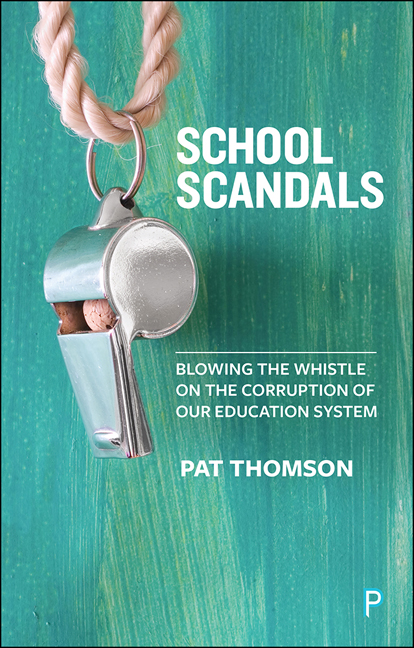Book contents
- Frontmatter
- Dedication
- Contents
- List of Tables and Boxes
- Glossary
- Acknowledgements
- Preface
- 1 A Book about Corruption in Schools
- 2 A Scandalous Schooling Muddle
- 3 Reforming Public Infrastructure
- 4 Costly Measures
- 5 Market Mentalities and Malpractices
- 6 The Effects of Effectiveness
- 7 Secrecy, lies and Gaming
- 8 Rebuilding Organisational Infrastructure
- 9 A Public Good Agenda for Change
- Notes
- Bibliography
- Index
5 - Market Mentalities and Malpractices
Published online by Cambridge University Press: 25 February 2021
- Frontmatter
- Dedication
- Contents
- List of Tables and Boxes
- Glossary
- Acknowledgements
- Preface
- 1 A Book about Corruption in Schools
- 2 A Scandalous Schooling Muddle
- 3 Reforming Public Infrastructure
- 4 Costly Measures
- 5 Market Mentalities and Malpractices
- 6 The Effects of Effectiveness
- 7 Secrecy, lies and Gaming
- 8 Rebuilding Organisational Infrastructure
- 9 A Public Good Agenda for Change
- Notes
- Bibliography
- Index
Summary
Academy founder facing jail over fraud
Daily Mail, 1 August 2016Accounts reveal shocking financial mismanagement at defunct academy trust
Schools Week, 7 June 2017Collapsing academy trust ‘asset stripped’ its schools of millions
The Guardian, 21 October 2017One in three academy trusts reviews pay after government warning
Schools Week, 24 January 2019Academy chain boss now earning £210,000 despite crackdown on high salaries
The Independent, 4 February 2019Control systems are a critical aspect of management. Control systems are intended to produce consistency in the key functions of an organisation, and they thus enhance efficiency and effectiveness. Control is a fundamental underpinning of any scientific approach to management. Control systems are generally applied to strategic thinking and planning, management and operations. Most organisations set objectives and standards and evaluate performance against them. They have mechanisms to manage ongoing activities to ensure that they stay within set parameters. In the contemporary civil service, internal regulatory controls are used to ‘see’ risks before they become too damaging, as well as to ensure that the organisation functions at maximum efficiency.
Control of money has always been important in the civil service, as in business. Control systems operate around how much money is spent and who spends it, as well as how it is accounted for. An efficient use of funds is one where there is minimal waste and maximum benefit. The ethos of the civil service (see Chapter 3) is (or should be) that spending wisely in the long-term public interest is also a moral duty.
While there are critiques of the rationalist and causal approach embedded in control systems, it is not unhelpful to use them to evaluate an organisation which uses them. How well does the organisation do in its own terms? This chapter addresses the question of control, again focusing on money. I examine some of the financial practices and control systems that are in place to manage a marketised school system. I ask how rational these practices actually are. The chapter examines efficiencies of scale and salaries for seniors leaders and their staff.
- Type
- Chapter
- Information
- School ScandalsBlowing the Whistle on the Corruption of Our Education System, pp. 95 - 120Publisher: Bristol University PressPrint publication year: 2020



